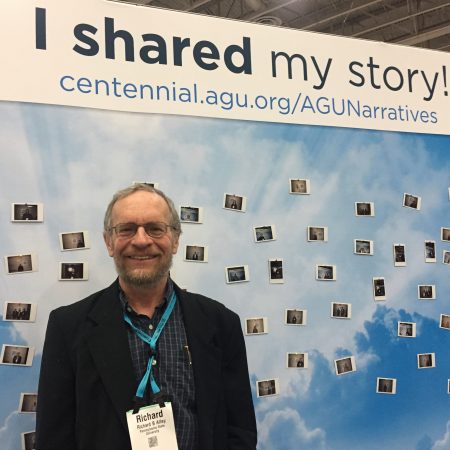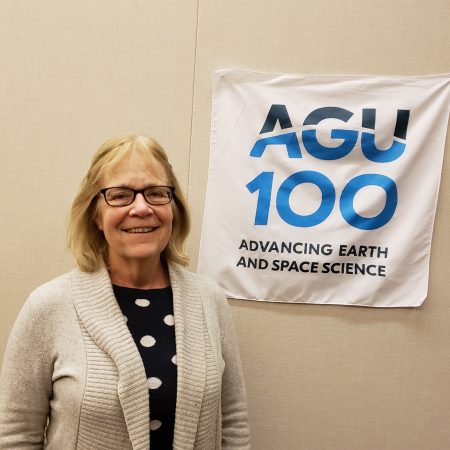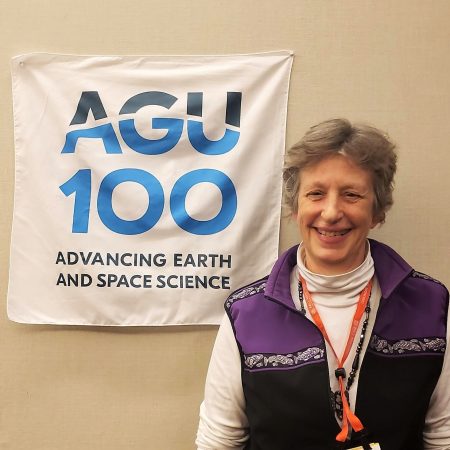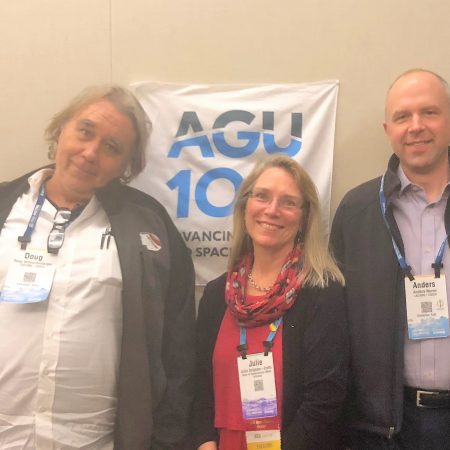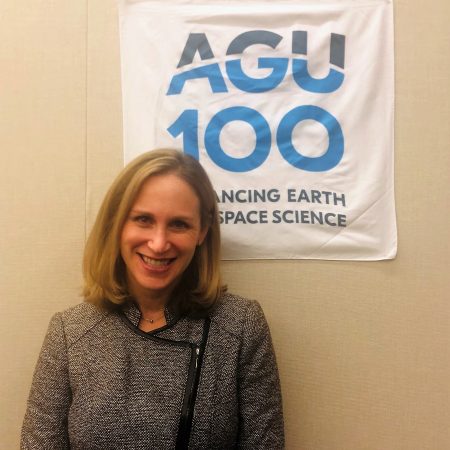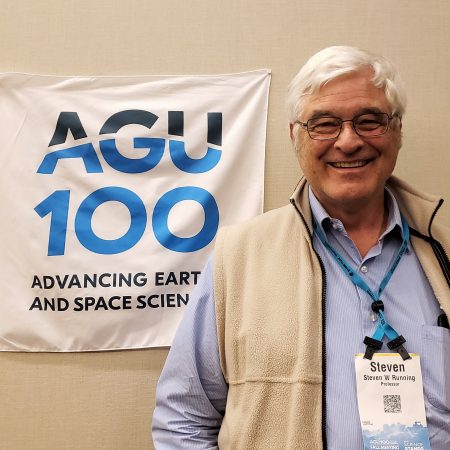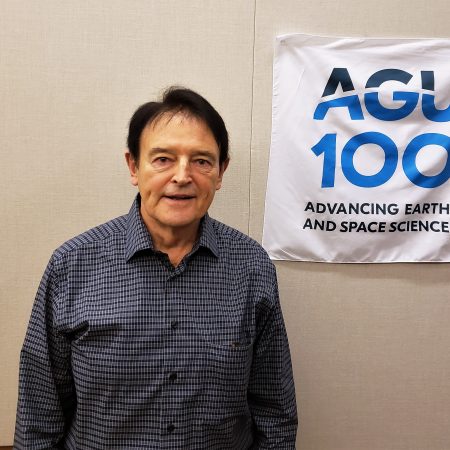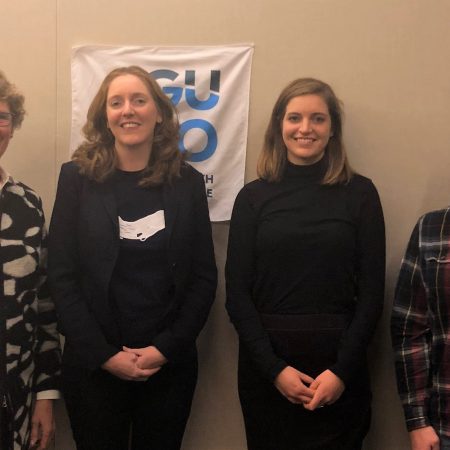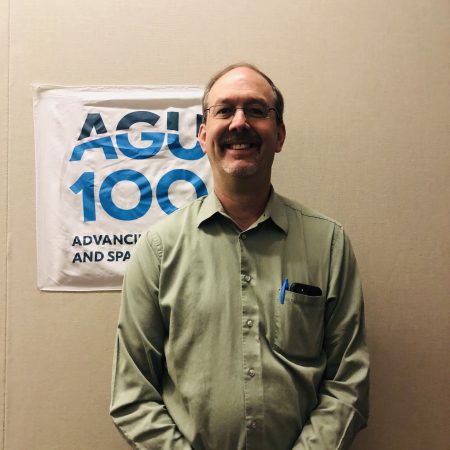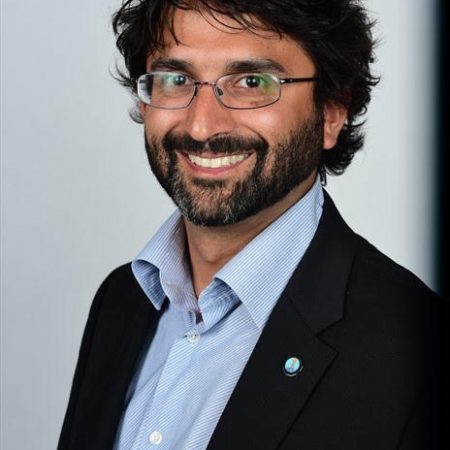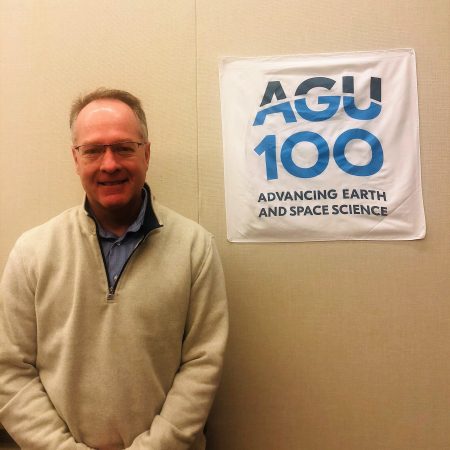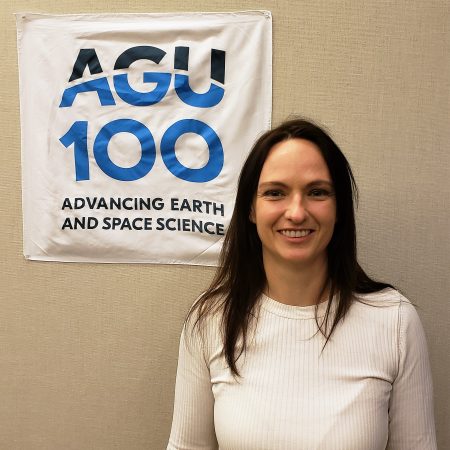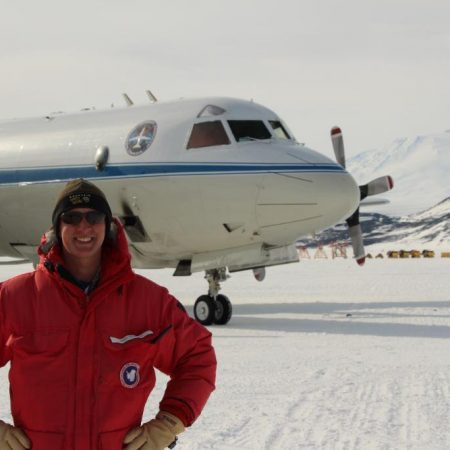Refine
Date Range Clear
Recorded by Clear
Keywords Clear
- volcanolgy 167
- #AGU100 166
- Venus 167
- mars 167
- NASA 62
- #AGU 167
- discovery 56
- #womeninscience 30
- Advice 24
- Collaboration 20
- 380 more
Partnerships Clear
- No matching terms.
Organizations Clear
- American Geophysical Union 35
- National Aeronautics and Space Administration 9
- The American Geophysical Union 4
- American Geopysical Union 2
- NASA 2
- 11 more
Places Clear
Languages Clear
- No matching terms.
Initiatives Clear
- No matching terms.
Kiya Riverman ended up studying glaciers because, on a field work trip, she was one of the few who could fit the ice cave in the glacier. She recalls, “you're surrounded by glaciers and then sometimes you're underneath glaciers. And...
Linda Geiser and Peter Nelson tell their own stories and reflect on the impact they’ve had on each other lives. They’re both currently with the US Forest Service but first met when Linda hired Peter after he finished university to...
Ana Jeleapov studies landscape geography and hydrology at the Institute of Ecology and Geography in Moldova. She and a small team of scientists are trying to decrease flooding in Moldova. “Floods are a natural phenomenon” with sometimes deadly impact on...
Michael Meyer, NASA's Chief Scientist for the Mars Exploration Program, talks about his life and work in science. As a teenager working as a deckhand on a treasure diving boat in Florida, he was hired to replace some fired divers...
Sarah Vines and Robert Allen once drove twenty hours to see a spaceship launch. Now, Sarah and Robert are married, post-doctoral students working in the laboratories of Johns Hopkins University. Sarah researches how magnetic fields form, and what earth’s magnetic...
Amber Soja’s career is on fire. The resident at NASA’s Langley Research Center studies fire regimes and how they are being affected by climate change. “Every fire season is worse,” she says, adding that the changing fire regime is proof...
For the last 14 years, Gari Mayberry has put her volcanology background to work as a disaster response coordinator at USAID. Disasters come in many shapes and sizes so that specialty is a start, but often Gari finds herself connecting...
Just a few short months ago, Nicola Fox took over as Director of NASA’s Heliophysics Lab. She’d been prepping for the role a lifetime, however, recounting how she started her scientific career when she was eight months old, thanks to...
Alex Young has a great finger on the weather. But the Associate Director for Science in the Heliophysics Science Division at NASA's Goddard Space Flight Center’s attention is focused far higher than any storm cloud. He studies space weather and...
Paul Stackhouse is a sun chaser, but in his case it means measuring the surface radiation budget. This means figuring out how much sunlight gets to the surface of the planet, and takes a deep understanding of factors like cloud...
Dr. Jim Green has spent 38 years of his life working at NASA. He started there with a fresh Ph.D. in Earth magnetospheric science and helped pioneer the magnetosphere research group at Marshall Space Flight Center. He spent 12 years...
Richard Alley is a professor in glaciology and loves what he does. He talks about gathering ice cores from Antarctica as an undergraduate, only to return for his PhD and continue the work. He’s measured fallout from atomic bombs tests...
Cloud scientist Steven Platnick is trying to learn how clouds may magnify—or minimize—the effects of climate change. He first got excited about clouds when his Ph.D. advisor, who "treated us like equals," started asking questions about clouds. "He asked questions...
Nearing the end of her career, Anne Douglass, at NASA Godard Space Flight Center, has provided the scientific community with a better understanding of the ozone layer that protects us all from ultraviolet radiation. Anne describes the energy that it...
Kathy Cashman, professor at the University of Bristol, worked on the 1980 eruption at Mount St. Helen’s in Washington, one of the first monitored volcanic eruptions in the world (“it was a ‘who’s who’ of volcanology and geology”). Thanks to...
Let’s say you’ve been involved in a project that has produced over 70 publications. Let’s say that project has spanned half your life. Let’s say you had to cross nations, endure tough conditions and delays, and negotiate a sometimes very...
In research, Dalia Kirschbaum literally seeks landslide victories, though in her case this entails finding disasters. The research scientist at NASA’s Goddard Space Flight Center uses satellite monitoring to get clear predictions about actual landslides through satellite information. “My work...
Stephen Running, an Emeritus Regent's Professor at the University of Montana, shares about his work with NASA studying the global ecosystem from space. Trying out a microscope at a young age ironically led him into a lifetime of looking at...
Who says work ends when you retire? For Tom Dunne, University of California Santa Barbara, the work is still finding him. Instead of heading off to the Amazon to find discovery, these days he need only look out his window...
What starts as a conversation about arctic change is actually an all-encompassing discussion about career growth, patience, and personal growth. Walt Meier, National Snow, and Ice Data center, introduces us to Jackie Richter-Menge, US Arctic Research Commission, who has spent...
Thomas Wagner, NASA's Program Scientist for the cryosphere, discusses how his life has developed to study the Arctic and Antarctic. Even though as a student he initially found himself bored by studying glaciology, he soon discovered a passion for polar...
Sanjoy Som, Director of the Blue Marble Space Institute of Science, believes in the importance of space science as a common goal of humanity, regardless of country – the founding inspiration of his institute. He talks about his passion for...
Brad Doorn’s, Water Resources and Agriculture Applied Science Program NASA, work includes forecasting the global food supply, including warnings and predictions about possible problems that might arise due to water supply shortages which can inform global market prices. While the...
As a deputy section manager at NASA’s Jet Propulsion Lab, Carmen Boening is keenly focused on rising with the tide. The trouble is, the water level isn’t going down as the climate warms. Partly through the monitoring of a set...
As a mission scientist with NASA's Operation IceBridge, John Sonntag has been keeping an eye on the polar ice caps for the better part of 20 years. The good news is, he is very well-versed in the science and analysis...
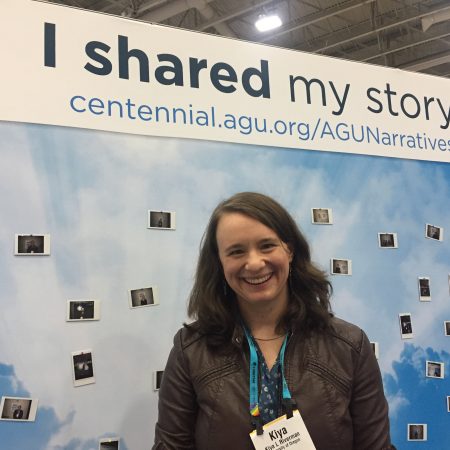
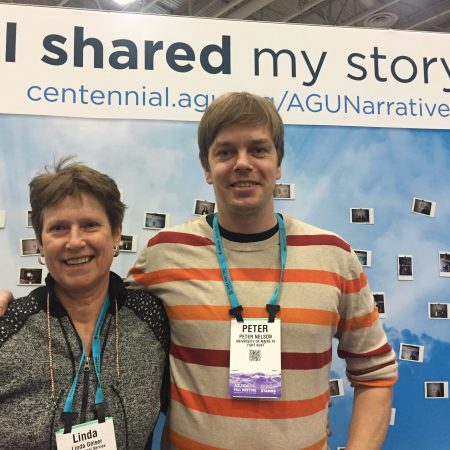
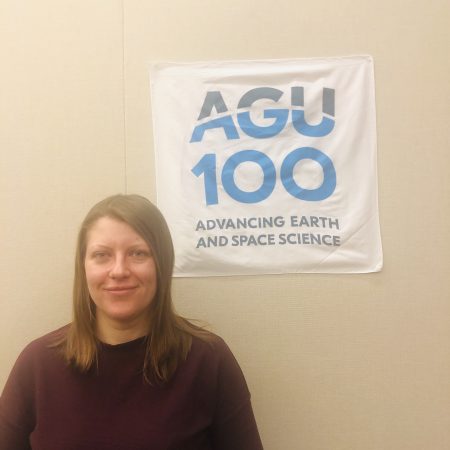
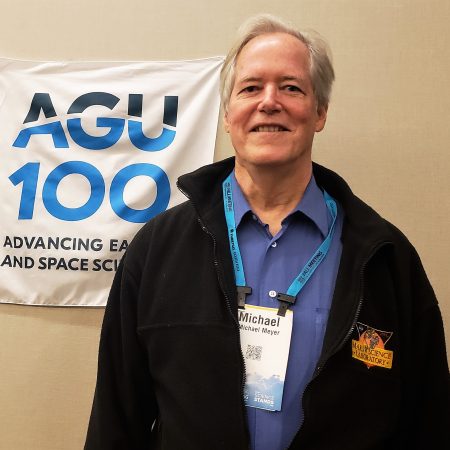
!["[Science] lets us imagine things we hadn't thought possible." an interview with Sarah Vines and Robert Allen](https://archive.storycorps.org/uploads/2019/07/Sarah-Vines-w-Robert-Allen.jpg)

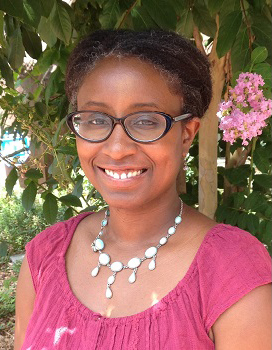
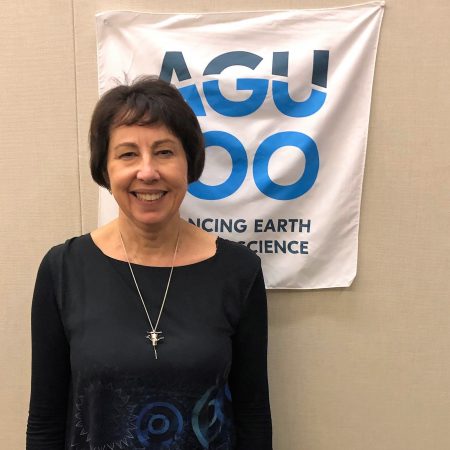
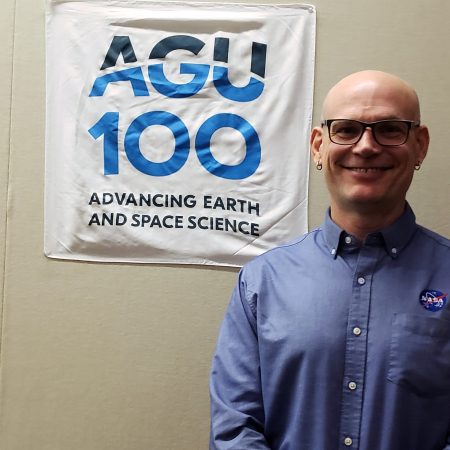
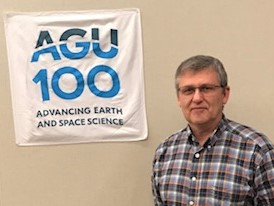
!["We're moving through a period of understanding [other] planets & how they relate to life on Earth." interview with Jim Green by Kim Cartier](https://archive.storycorps.org/uploads/2019/01/181210_Green-450x450.jpg)
